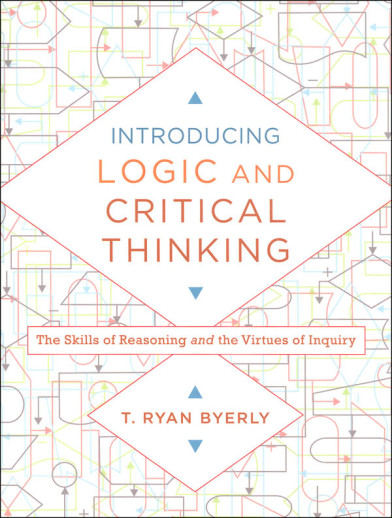We use cookies to make your experience better. To comply with the new e-Privacy directive, we need to ask for your consent to set the cookies. Learn more.
Introducing Logic and Critical Thinking: Skills of Reasoning and the Virtues of Inquiry
With a purposeful emphasis on intellectual excellence, this introduction to logic text moves beyond the scholarly examination of arguments that commonly center upon deductive and inductive logic. The various topics are covered thoroughly with detailed instructional segments, each ending with a set of applicatory exercises. What sets this text apart, however, is the second section that delves into what the author terms “virtues of inquiry." As a foundation for discussing logic fallacies, the topics of intellectual courage and caution, introspective vigilance, trust, interpretive charity, intellectual generosity, communicative clarity, and audience sensitivity illustrate the applications and importance for Christian students desiring to apply critical thinking to all aspects of their lives. Exercises in this section are vignettes that encourage the student to think through all aspects of the scenario. This is a rigorous course. Additional exercises are available through a website link, however, answers to the website exercises are not included. The expectation is that the student will be discussing these lessons with a parent/teacher. ~ Janice
This robust, clear, and well-researched textbook for classes in logic introduces students to both formal logic and to the virtues of intellectual inquiry. Part 1 challenges students to develop the analytical skills of deductive and inductive reasoning, showing them how to identify and evaluate arguments. Part 2 helps students develop the intellectual virtues of the wise inquirer. The book includes helpful pedagogical features such as practice exercises and a concluding summary with definitions of key concepts for each chapter.


I find the topic interesting
I loved the description, so figured my Junior could try it
To go with Earth Science